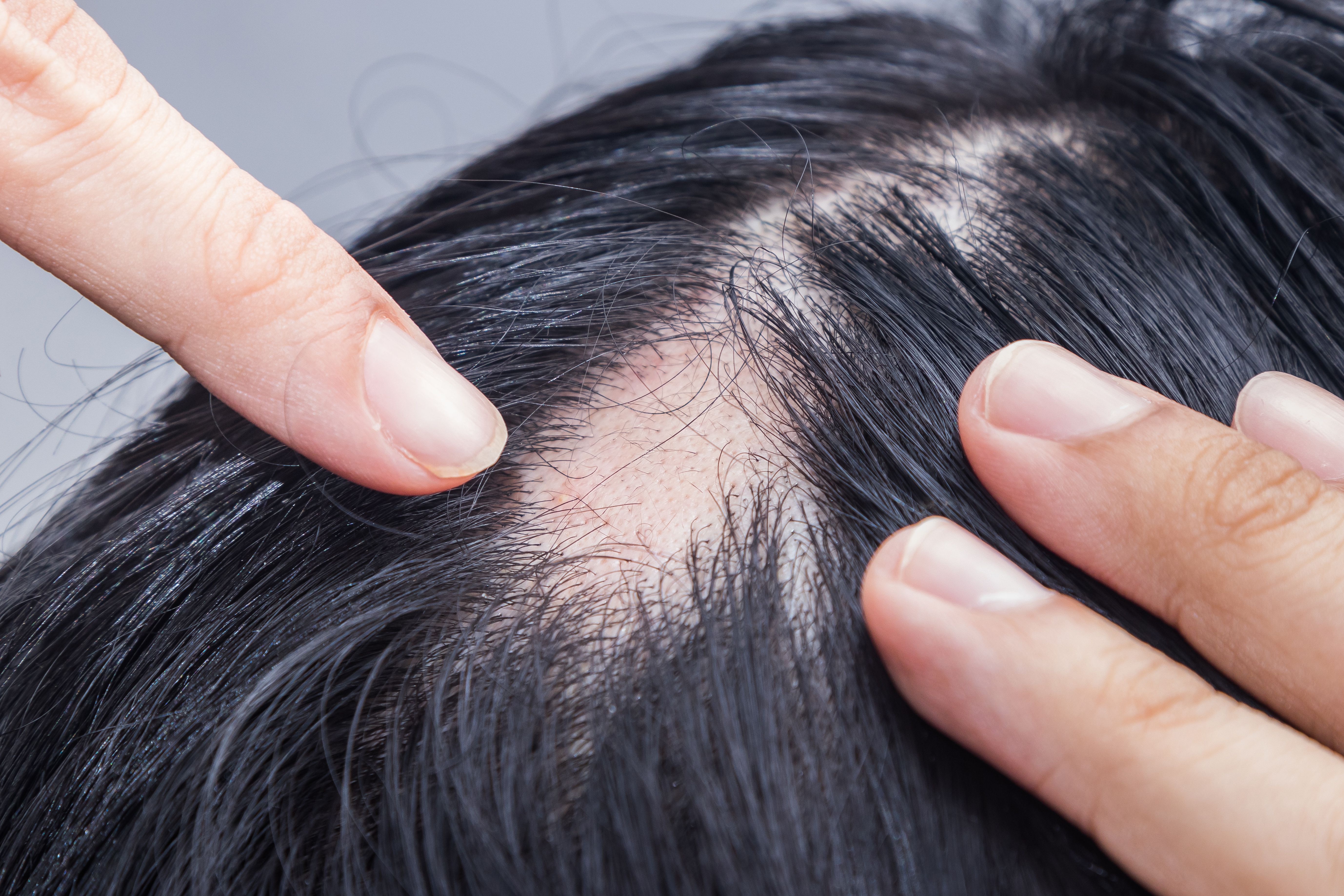- Case-Based Roundtable
- General Dermatology
- Eczema
- Chronic Hand Eczema
- Alopecia
- Aesthetics
- Vitiligo
- COVID-19
- Actinic Keratosis
- Precision Medicine and Biologics
- Rare Disease
- Wound Care
- Rosacea
- Psoriasis
- Psoriatic Arthritis
- Atopic Dermatitis
- Melasma
- NP and PA
- Skin Cancer
- Hidradenitis Suppurativa
- Drug Watch
- Pigmentary Disorders
- Acne
- Pediatric Dermatology
- Practice Management
- Prurigo Nodularis
- Buy-and-Bill
Publication
Article
Dermatology Times
Ritlecitinib Performed Well in Adolescent Cohort Analysis of ALLEGRO Trial
Author(s):
Researchers conducted a subgroup analysis of the ALLEGRO phase 2b/3 clinical trial to evaluate the safety and efficacy of the drug in patients aged 12-17.
In a subgroup analysis1 of the ALLEGRO phase 2b/3 clinical trial2 of ritlectinib in patients with alopecia areata, researchers found that the drug demonstrated clinician-reported efficacy, patient-reported improvement, and an acceptable safety profile.
cattyphoto/AdobeStock

Researchers sought to investigate the safety and efficacy of the oral, selective dual JAK inhibitor in a cohort of adolescent patients ranging in age from 12 to 17, noting that there are currently no approved systemic treatment options available for adolescent patients with AA.
“Given the lack of approved therapeutic options, treatment for children and adolescents with AA remains a significant unmet medical need,” wrote Hordinsky et al.
Within the ALLEGRO phase 2b/3 combined-dose ranging, double-blind, placebo-controlled, and randomized trial (NCT03732807), researchers had reported efficacy and acceptable safety in patients with AA ages 12 years and older over a duration of 48 weeks.
For 24 weeks, patients were randomized to 1 of several treatment groups: 10 mg ritlecitinib, 30 mg ritlecitinib, 50 mg ritlecitinib, or a placebo, to be taken on a once-daily basis. Patients receiving the 30 mg or 50 mg dose also received a 200 mg 4-week loading dose. After the initial 24 weeks, patients already taking ritlecitinib remained assigned to their initial dosing, while patients who had first been receiving the placebo were assigned to receive a 200 mg 4-week loading dose and 50 mg daily dose of ritlecitinib.
Researchers evaluated efficacy using the Severity of Alopecia Tool (SALT).
While 718 patients were enrolled in the study, 14.6% (n=105) were between the ages of 12 and 17. Of these patients, the average age was 14.9 years, while more than half (51%) of participants were female. 43% of all adolescent patients had either alopecia totalis or alopecia universalis.
By week 24, 17% to 28% of adolescent patients had achieved SALT score equal to or less than 20% of the scalp without hair, specific to patients receiving a 30 mg or higher dose of ritlecitinib. By week 48, or the study’s conclusion, between 25% to 50% of adolescent patients taking a 30 mg or higher dose of ritlecitinib achieved the same metric of SALT≤ 20.
While 10% to 22% of adolescent patients receiving the placebo reported “moderate” or “great” improvement by the halfway point of the study, between 45% and 61% receiving a 30 mg or higher dose of ritlecitinib reported moderate to great improvement to their AA. By the conclusion of the study, this number rose between 44% and 80%.
Among adolescents, no severe adverse events, including cardiovascular events, malignancies, pulmonary embolisms, or deaths, occurred. The most common adverse events in this population were acne, headache, and nasopharyngitis.
“While this analysis was limited by the small numbers of adolescents in each treatment group, the results are consistent with those in the total ALLEGRO-2b/3 study population,” wrote Hordinsky et al. “Due to the limited number of patients in each group, post hoc tests for statistical significance were not performed. In conclusion, treatment with ritlecitinib for 48 weeks demonstrated clinician- and patient-reported efficacy and had an acceptable safety profile in adolescents with ≥50% scalp hair loss due to AA.”
References
- Hordinsky M, Hebert AA, Gooderham M, et al. Efficacy and safety of ritlecitinib in adolescents with alopecia areata: results from the ALLEGRO phase 2B/3 randomized, double‐blind, placebo‐controlled trial. Ped Dermatol. Published online July 17, 2023. doi:10.1111/pde.15378
- King B, Guttman-Yassky E, Peeva E, et al. Safety and efficacy of ritlecitinib and brepocitinib in alopecia areata: results from the crossover open-label extension of the ALLEGRO phase 2a trial. JID Innov. 2022;2(6):100156. Published 2022 Sep 7. doi:10.1016/j.xjidi.2022.100156






